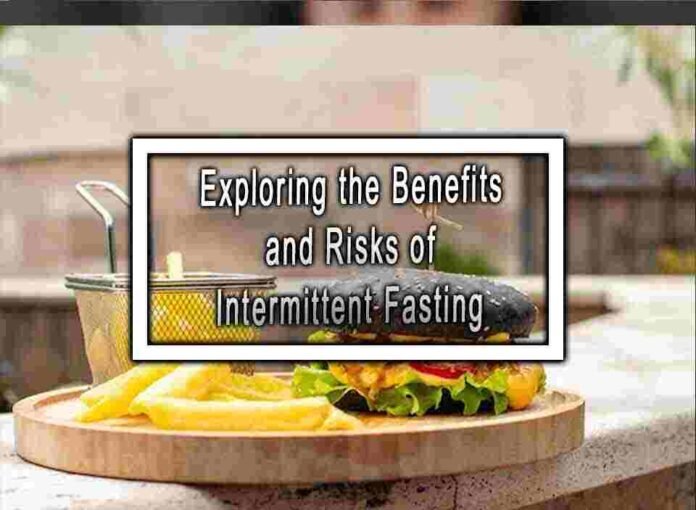Intermittent fasting (IF) is an eating pattern that cycles between periods of fasting and eating. It has gained popularity in recent years due to its potential health benefits. However, as with any dietary approach, there are both benefits and risks associated with intermittent fasting. Let’s explore them in more detail:
Benefits of Intermittent Fasting
1. Weight loss
IF can be an effective tool for weight management. By restricting the eating window, it often leads to a reduction in overall calorie intake, which can result in weight loss. Additionally, fasting triggers hormonal changes that promote fat burning.
2. Improved insulin sensitivity
Intermittent fasting has been shown to enhance insulin sensitivity, which is beneficial for individuals with insulin resistance or type 2 diabetes. It helps regulate blood sugar levels and may reduce the risk of developing these conditions.
3. Reduced inflammation
Some studies suggest that intermittent fasting can decrease inflammation in the body. Chronic inflammation is associated with various diseases, such as cardiovascular disease, diabetes, and certain cancers.
4. Enhanced autophagy
Autophagy is a cellular process that involves the removal of damaged or dysfunctional cells. Intermittent fasting has been shown to stimulate autophagy, which may have anti-aging effects and protect against certain diseases.
5. Brain health
Preliminary research suggests that intermittent fasting may have neuroprotective effects, potentially reducing the risk of neurodegenerative disorders like Alzheimer’s and Parkinson’s disease. It may also improve cognitive function and mental clarity.
Risks and Considerations of Intermittent Fasting
1. Nutritional deficiencies
With a restricted eating window, there’s a risk of consuming insufficient nutrients, especially if the diet is not well-balanced during the eating period. It’s important to ensure that meals include a variety of nutrient-dense foods to meet the body’s nutritional needs.
2. Disordered eating patterns
For individuals with a history of disordered eating or those prone to obsessive behavior around food, intermittent fasting may exacerbate these issues. It’s crucial to approach fasting with a healthy mindset and seek guidance from a healthcare professional if necessary.

3. Adverse effects
Some people may experience negative side effects during the fasting period, such as hunger, irritability, difficulty concentrating, or low energy levels. These symptoms are often temporary and can be mitigated by adjusting the fasting schedule or meal composition.
4. Unsuitability for certain populations
Intermittent fasting may not be suitable for everyone, including pregnant or breastfeeding women, individuals with certain medical conditions, or those taking certain medications. It’s important to consult a healthcare professional before starting any fasting regimen.
5. Compliance and sustainability
Intermittent fasting requires adherence to a specific eating pattern, which may be challenging for some individuals to maintain in the long term. Finding a fasting schedule that suits one’s lifestyle and preferences is essential for sustainable and successful implementation.
It’s worth noting that the research on intermittent fasting is still evolving, and individual responses to fasting can vary. As with any significant dietary changes, it’s advisable to consult a healthcare professional or a registered dietitian before embarking on an intermittent fasting regimen to ensure it aligns with your specific health needs and goals.










